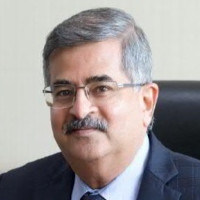Sundeep Oberoi
Adjunct Professor
·
Adjunct Faculty
Dr Sundeep Oberoi has 36 years of industry, research and entrepreneual experience in diverse areas of Information and Communication Technology. His experience covers a wide spectrum of experience in Delivery Management of large and critical programmes, technology development, product development, business development, system integration and management of research laboratories. He has a Ph.D. in Computer Science from IIT Bombay, an M.Tech in Computer Science from IIT Delhi and a B.Tech in Chemical Engineering from IIT Kanpur.
He was responsible for the establishment of the IIT Bombay – Tata Infotech Research Laboratory in 1997 and was its first head.
He retired from the Tata Group in November 2020 and prior to retirement served as the Global Head for the Cybersecurity Business Unit of Tata Consultancy Services and was recognized as #4 in the top 25 Cybersecurity Executives of 2020 – “The IT Services Report”.
He was responsible for security execution in several large Government of India projects like the AWAN project of Indian Army, Passport Seva Project, MCA-21, security of EVMs and many other important projects.
Research Interests
Digital SocietiesTechnology and SocietyPolicy Aspects of Technology Deployment at ScalePolicy Aspects of Data Governance and ManagementStandards as a Vehicle for Policy ImplementationTrustworthiness of Systems and Systems-of-SystemsCybersecurity
Education
PhD Computer Science, Indian Institute of Technology, Bombay
MTech Computer Science, Indian Institute of Technology, Delhi
BTech, Chemical Engineering, Indian Institute of Technology, Kanpur
MTech Computer Science, Indian Institute of Technology, Delhi
BTech, Chemical Engineering, Indian Institute of Technology, Kanpur
Publications
Projects
